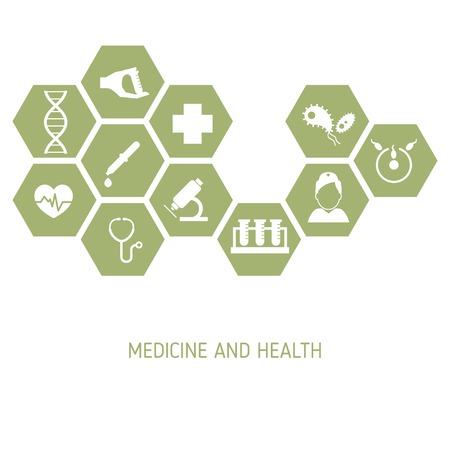Introduction to Pre-existing Medical Conditions and Allergies
In the landscape of UK healthcare, recognising and accurately documenting pre-existing medical conditions and allergies is essential for delivering safe and effective patient care. During consultations, healthcare professionals are expected to take a thorough history, which includes understanding any long-standing health issues or sensitivities that could impact diagnosis, treatment, or ongoing management. Inaccurate or incomplete records can lead to inappropriate prescribing, avoidable adverse reactions, or missed opportunities for preventative interventions. This attention to detail aligns with NHS guidelines and the expectations set by regulatory bodies such as the General Medical Council (GMC), reinforcing a culture of patient safety and continuity of care across GP surgeries, hospitals, and community clinics. Ultimately, addressing these elements at the outset of a consultation not only builds trust between patients and clinicians but also forms the foundation of personalised medicine in the UK context.
2. Best Practices for Gathering Patient Histories
Taking a comprehensive patient history is crucial in British healthcare settings, especially when addressing pre-existing medical conditions and allergies. The NHS encourages clinicians to adopt a structured yet empathetic approach, which not only ensures accurate information but also respects the diverse backgrounds of patients. Below are some approaches and commonly used phrases that align with NHS protocols and cultural sensitivities.
Approaches for Eliciting Relevant Information
Establishing trust and clarity at the outset of the consultation is vital. Begin with open-ended questions to allow patients space to describe their medical history in their own words, then use more focused enquiries to clarify specifics. Always maintain an inclusive attitude and avoid assumptions about a patient’s understanding or background.
Common Phrases Used in UK Consultations
| Purpose | Example Phrase |
|---|---|
| General enquiry about history | “Could you tell me if you have any existing health conditions we should be aware of?” |
| Eliciting allergy information | “Do you have any known allergies, such as to medicines, foods or anything else?” |
| Clarifying medication use | “Are you currently taking any prescribed or over-the-counter medicines?” |
| Checking for family history relevance | “Is there any family history of similar conditions that might be helpful for us to know?” |
| Cultural sensitivity check | “Are there any cultural or religious beliefs that might affect your treatment preferences?” |
| Ensuring understanding | “If anything I’ve said isn’t clear, please do let me know so I can explain further.” |
Attention to Cultural Sensitivities and NHS Protocols
The NHS recognises the importance of patient-centred care, especially in multicultural communities. Practitioners are encouraged to:
- Avoid jargon and explain medical terms in plain English.
- Use professional interpreters when language barriers exist.
- Respect privacy and reassure patients about confidentiality under NHS guidelines.
- Acknowledge and accommodate cultural practices or beliefs relating to health and medicine wherever possible.
- Document all relevant details accurately in the patients record according to NHS standards.
This careful approach not only improves safety by reducing the risk of missed allergies or overlooked conditions, but also fosters a sense of respect and partnership between clinician and patient.

3. Accurate Documentation and Communication
Meticulous documentation of pre-existing medical conditions and allergies is a cornerstone of safe and effective patient care within the UK healthcare system. When recording this information, it is essential to use standardised British medical terminology and adhere to NHS guidelines for medical records. Clinicians should ensure that any history of chronic illnesses, such as asthma, diabetes, or cardiovascular disease, is clearly detailed in the patients notes. Additionally, all known allergies—be they drug-related, food-based, or environmental—must be prominently flagged within electronic health records (EHR) and paper charts alike. This practice helps prevent adverse events and guides appropriate prescribing decisions.
Key points include: always confirming current medications and allergy status at every consultation; updating records if new conditions are diagnosed or allergies identified; and utilising alerts within EHR systems to highlight critical information. It is also important to communicate these details effectively during handovers between primary care and secondary services, ensuring continuity of care. In summary, precise documentation and clear communication are vital for safeguarding patient wellbeing and supporting clinical decision-making throughout the NHS.
4. Navigating Patient Disclosure and Privacy
One of the most significant challenges in addressing pre-existing medical conditions and allergies during consultations is encouraging patients to share accurate and complete information. In the UK, a strong emphasis on patient rights and confidentiality often shapes these conversations, but some individuals may still feel hesitant to disclose sensitive health details due to concerns about privacy, discrimination, or stigma.
Common Barriers to Patient Disclosure
| Barrier | Description | Potential Impact on Care |
|---|---|---|
| Mistrust in Confidentiality | Concerns that personal data might be shared without consent. | Incomplete medical history; increased risk of adverse events. |
| Fear of Judgement or Stigma | Anxiety about how healthcare professionals may perceive certain conditions (e.g., mental health, HIV). | Reluctance to disclose relevant information; suboptimal treatment. |
| Lack of Awareness | Patients may not realise the importance of disclosing all allergies or past medical issues. | Missed diagnosis or ineffective management plans. |
UK Patient Rights and Confidentiality Standards
The NHS places a high priority on safeguarding patient information. Under the General Data Protection Regulation (GDPR) and the NHS Constitution, patients have clear rights regarding the confidentiality and use of their personal health data. These frameworks ensure that:
- Information is only shared with those directly involved in the patients care unless explicit consent is provided.
- Patients can request access to their own records and control how their information is used.
- Breach of confidentiality is taken seriously, with established processes for reporting and investigating incidents.
Solutions for Overcoming Disclosure Hesitancy
- Clear Communication: Begin consultations by explaining why sharing details about pre-existing conditions and allergies is essential for safe care.
- Building Trust: Reassure patients about how their data will be protected, referencing NHS standards and practices.
- Cultural Sensitivity: Be mindful of language barriers or cultural factors that may affect disclosure and adapt questioning techniques accordingly.
- Written Information: Offer leaflets or digital resources outlining patient rights in plain English, including how confidentiality is maintained within UK healthcare settings.
- Encourage Questions: Invite patients to discuss any concerns they have regarding privacy or the implications of sharing sensitive information.
A Practical Example from a UK GP Practice
A patient with a history of severe penicillin allergy is reluctant to mention this due to previous negative experiences. The GP explains the practices strict adherence to confidentiality policies and clarifies that this information will only be used to protect the patients safety during prescribing decisions. This approach reassures the patient, leading them to disclose their allergy, which is then recorded appropriately in their electronic health record.
5. Risk Management and Safety Precautions
Mitigating clinical risk is a central aspect of addressing pre-existing medical conditions and allergies during consultations. A robust approach begins with verifying the patients allergy status before making prescribing decisions or referrals. This precaution is not only a matter of good practice but also aligns with NHS guidance on patient safety. The use of up-to-date electronic health records and clinical decision-support tools, such as those integrated within NHS systems, can significantly reduce the likelihood of adverse reactions. These tools prompt clinicians to double-check for documented allergies or contraindications related to specific medications or interventions. Furthermore, standardised checklists and protocols should be routinely employed, particularly in busy GP surgeries or hospital settings where errors can easily occur. Training all staff to recognise the importance of accurate history-taking and proper documentation ensures that no critical information is overlooked. Engaging patients in the process—by encouraging them to share updates about their health status or any new allergies—further strengthens risk management efforts. Ultimately, by combining thorough checks, reliable digital support, and open communication, clinicians can uphold the highest standards of safety in line with national recommendations.
6. Follow-up and Patient Education
Ensuring patients understand the importance of sharing accurate and up-to-date information about their pre-existing medical conditions and allergies is fundamental to effective consultations in UK healthcare settings. It is vital to emphasise that even minor changes in health status, medication, or allergic reactions can significantly influence clinical decisions and patient safety. Patients should be encouraged to regularly review and update their medical records, as this enables clinicians to make informed choices and provide tailored care.
The Importance of Regular Review
Continuity of care relies heavily on maintaining current information. Patients who attend regular follow-ups are more likely to have their evolving health needs recognised promptly, reducing the risk of adverse drug interactions or overlooked allergies. Practices should establish systems to remind patients about periodic reviews, especially for those with complex or multiple long-term conditions. These reviews offer an opportunity to re-assess any changes in symptoms, medication efficacy, or new allergic responses.
Empowering Patients Through Communication
Patient education should focus on fostering open communication. Healthcare professionals must clearly explain why disclosing all relevant medical history and allergy information is crucial—not just at registration, but at every encounter. This dialogue reassures patients that their input directly impacts diagnosis accuracy and treatment safety, empowering them to take an active role in their own care.
Practical Guidance for Patients
Offer practical tips such as keeping a written list of diagnoses, medications, and known allergies, and bringing it to each appointment. Remind patients that certain over-the-counter remedies or herbal supplements may also interact with prescribed treatments or exacerbate existing allergies. Encourage them to inform the practice promptly if they experience new symptoms or reactions between scheduled visits.
Ultimately, reinforcing the message that up-to-date information underpins safe and effective healthcare helps build trust and engagement. Regular follow-up combined with ongoing patient education creates a robust foundation for continuity of care, reducing risks and improving outcomes for individuals with pre-existing conditions and allergies.


